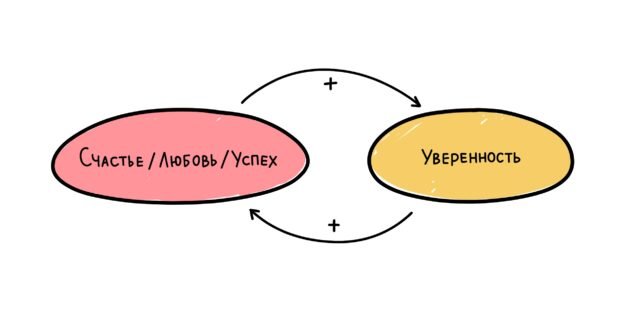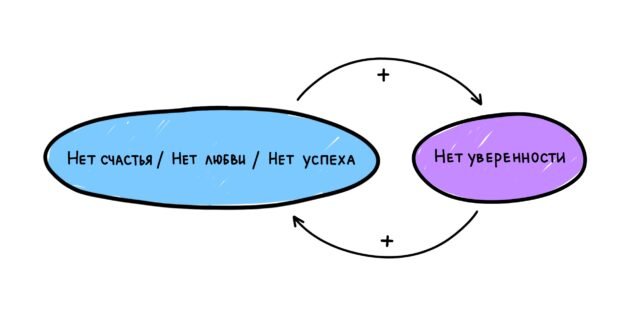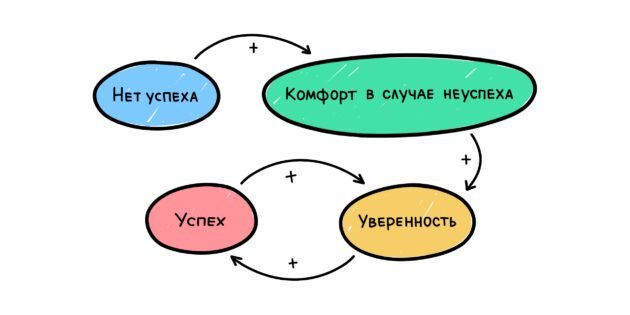
How can you be sure of something if you have nothing to be sure of?
For example, how can you be sure that you can handle a new job if you haven't done anything like this before? How can you be sure of communication if no one liked you before? How can you be confident in a relationship with someone if you've never been in a healthy relationship before?
At first glance, confidence seems to be an area in which the rich get richer and the poor remain fucking losers. After all, if you have never received social recognition and feel insecure when you communicate with new people, this insecurity will make others think that you are clingy and strange, and they will not accept you.
The same goes for relationships. Uncertainty leads to difficult breakups, awkward phone calls and emergency trips for ice cream at three in the morning.
And seriously, how can you be confident in your job when you need to have previous work experience just to get your candidacy considered?
Here we come to the main point.
If you always lose in life, how can you ever hope to become a winner? And if you never hope to win, you will always behave like a loser. Thus, the sucky cycle of failures turns into a vicious circle.
This is the paradox of confidence. To be happy, loved or successful, you first need to become self-confident. And to become self-confident, you first need to be happy, loved or successful.
So it seems that you are stuck in one of two loops. Or in a happy and confident, like this:

Or you're in a loser's loop:

If you are caught in the second loop, it seems that it is impossible to get out of it. It's like a dog chasing its own tail. And you can spend a lot of time trying to figure everything out mentally, but, as with self-doubt, you will still return to where you started.
But what if we approach this problem incorrectly? What if the paradox of confidence isn't really a paradox at all?
If we pay attention, we can understand something about confidence just by watching people. Let's analyze everything in order:
The most obvious and easiest option is to believe that you don't need anything. That you already have everything, or at least you deserve everything that seems necessary for you to gain confidence.
But this kind of thinking—to believe that you are beautiful, even if you are sloppy and disheveled, or that you are successful, even if your only "business" was selling gum in junior high—leads to unbearable narcissism.
Many people eventually realize that this does not work, and choose a different approach: gradual external improvement. They read articles about 50 things that confident people do every day, and try to repeat the same thing. They play sports, start to dress better, look into other people's eyes more often and train a firm handshake.
This, admittedly, is a noticeable step forward in comparison with the simple belief that you are already confident in yourself and you do not belong in the loser's loop. At least you're doing something about your insecurities. And this approach really works. Only for a short time. He, again, focuses on external sources. But remember that drawing self—confidence from the outside world is at best a short-term strategy, at worst it's just delusional.
Therefore, no, no external improvement is a long-term measure to combat the confidence paradox. And it's much worse to try to convince yourself that you have enough and you have everything you could ever dream of.
The only way to be truly confident in yourself is to accept and find comfort in the thought that you are missing something.
Read the previous sentence again.
The paradox is that confidence has nothing to do with the feeling of satisfaction when we have achieved something, but it has a direct relationship to the feeling of comfort when we have not achieved something.

People who are confident in their business are confident in themselves because they are satisfied with failures. They understand that failure is part of the market research process. Failures reflect their ignorance, not their personal qualities.
People who are confident in their social life are confident in themselves because they feel comfortable when they are denied. They are not embarrassed by refusals, because they have no problems with the fact that someone does not like them, as long as they remain themselves.
People who are confident in their relationships are confident in themselves because they are not afraid of being hurt. They are able to show their vulnerability, talk about their feelings and establish strong boundaries around them, even if it means discomfort or a breakup of the relationship.
This is counterintuitive, but the truth is that the path to positivity lies through negativity. People who endure an unpleasant experience with less discomfort get the most benefit. We often worry that if we start to take failures more calmly, if we accept them as an integral part of life, we will become losers. But this is not the case.
The feeling of comfort in case of failure allows you to act without fear, to be involved in what is happening without condemnation, to love without conditions. It's like the same dog that stops chasing its tail, realizing that it is already a part of itself.
And now, excuse me, it's time to publish this article with a full sense of comfort from the fact that some readers will probably hate it.